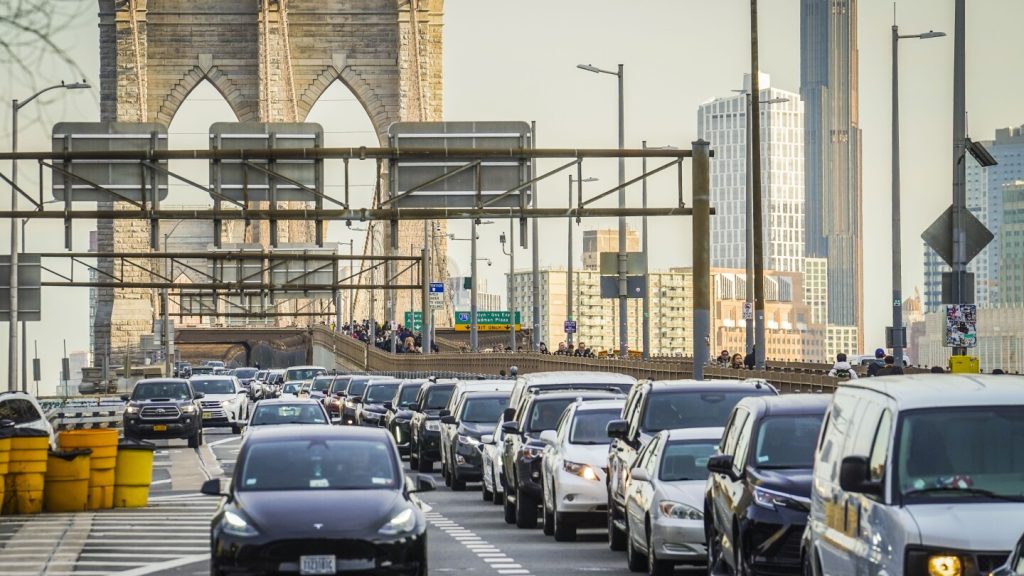In a surprising turn of events, New York Governor Kathy Hochul decided to halt a plan to implement congestion pricing in Manhattan just weeks before it was set to launch. The congestion pricing system aimed to charge most motorists $15 to enter the core of Manhattan, with the intention of raising funds for the city’s public transit system. Hochul cited concerns about the economic recovery from the COVID-19 pandemic and the financial burden the toll would pose on residents as reasons for the decision to pause the program indefinitely.
The congestion pricing program had been in the works for years and was scheduled to begin on June 30, following approval by the former Governor Andrew Cuomo. The announcement of the halt to the program shocked many in New York’s political circles and raised questions about how the state would fund transit upgrades that were previously slated to be financed by the toll revenue. Transportation advocates expressed disappointment and labeled the decision as a betrayal of New Yorkers and the environment.
Opposition to the congestion pricing plan had been growing among commuters and officials in the city’s suburbs. Governor Hochul, who has been focusing on addressing suburban voters’ concerns, received support from U.S. Rep. Pat Ryan and various groups representing different industries and regions in opposing the plan. The plan aimed to charge vehicles entering Manhattan below 60th Street a minimum of $15, on top of existing tolls for using bridges and tunnels into the city.
The Metropolitan Transportation Authority had already invested over $500 million in equipment for the congestion pricing system, including cameras and sensors, which has led to questions about the state’s priorities and handling of funds. Mayor Eric Adams, a previous supporter of congestion pricing, backed Governor Hochul’s decision to halt the program and expressed willingness to explore alternative methods of funding transportation initiatives. The delay in the plan will require approval from the MTA’s board, which is controlled by the governor.
Hochul stated that she remains committed to funding the state’s transportation initiatives but did not specify where the money would come from. Any alternative tax proposal would require approval from the state legislature, which is ending its session soon. With uncertainty around how important projects like signal upgrades and rail improvements will be funded following the pause of the congestion pricing program, questions have been raised about potential financial implications and the future of transit funding in New York.


